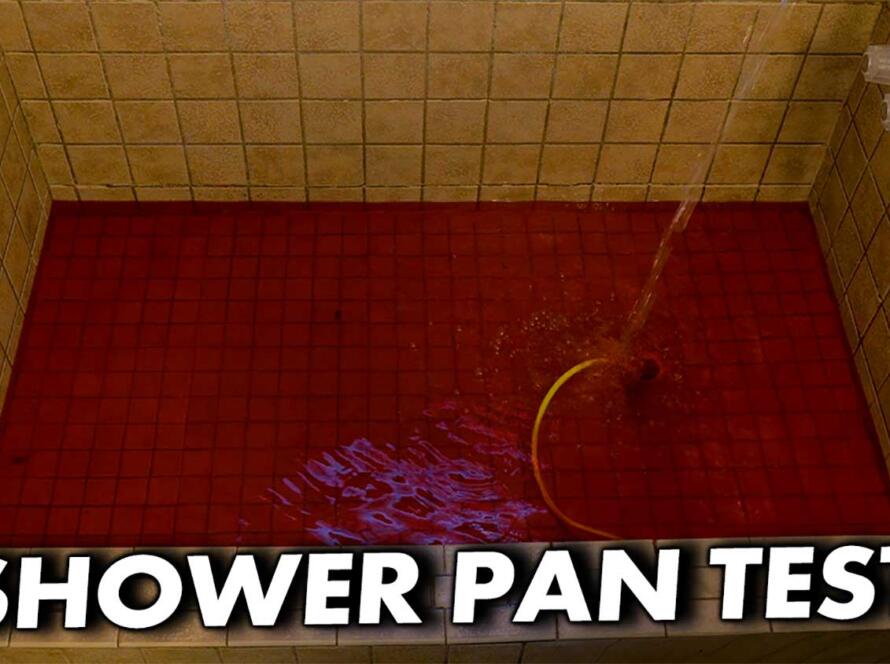Roger Wakefield has faced some frustrations over the last four decades of working in the plumbing trade. Despite these challenges, he still loves the industry and wants others to understand the reality—both good and bad—before jumping in. Whether you’re already in the trades or just thinking about it, this post will walk you through the harsh truths he’s experienced and how he overcame them. You’ll get practical tips on staying warm in brutal weather, protecting your body from unnecessary strain, planning for a comfortable retirement, breaking the paycheck-to-paycheck cycle, and handling some of the more unpleasant aspects (literal and figurative) of plumbing. If you’re on the fence about becoming a plumber, or want to make the most of your career in the trades, these insights will help you navigate the tough parts and still come out loving what you do.
Reason #1: The Work Environment
Many people picture plumbers working indoors, perhaps installing a sink or unclogging a drain in a warm, well-lit bathroom. The reality is that you may find yourself in the most unforgiving conditions. From rooftops in the snow to muddy trenches in the heat of summer, plumbers often work at new construction sites, where buildings may have no walls, windows, or functional heating and cooling systems.
Roger recalls a vivid memory of installing overhead pipes on the fifth floor of a building in freezing weather. Snow was practically horizontal because of the wind, and he had to rely on thick coveralls and gloves just to make it through the day. This brutal situation illustrates a harsh truth: the weather doesn’t wait for you. Jobs still need to be completed, and production quotas don’t pause just because your environment is difficult.
Tips to Overcome Harsh Work Environments:
-
Invest in High-Quality Apparel: Modern thermal undergarments and insulated gear can significantly reduce discomfort in cold weather. If you’re working in scorching heat, use moisture-wicking fabrics and hydrate consistently.
-
Prepare for the Worst: Keep extra layers, gloves, and even a change of clothes in your vehicle or job trailer. If you get wet or dirty, you’ll be glad you had spares.
-
Plan Your Day Wisely: Schedule the most demanding tasks for times of day when the weather is less extreme—early morning in the summer or midday when it’s cold.
-
Know Your Limits: Safety should always be your first priority. If conditions are truly hazardous and you have the flexibility, it might be best to postpone certain tasks.
Reason #2: It’s Hard on Your Body
Plumbing is a physical job that involves crawling, lifting, climbing, bending, and sometimes hoisting heavy pipes overhead. Over time, this can take a serious toll on the body if you’re not careful.
When Roger first started, methods for moving heavy pipe were more primitive. Throwing a 6-inch cast iron pipe over the shoulder and climbing a ladder was a common practice. Today, many job sites have scissor lifts, pipe racks, and other mechanical aids that reduce the strain. However, not every plumber or every situation has these tools at hand.
Tips to Protect Your Body:
-
Adopt Good Ergonomics: Learn the correct way to lift heavy objects—bend your knees, keep your back straight, and avoid twisting. Consistent good form matters over decades.
-
Use Tools & Equipment: Whenever possible, use lifts, dollies, or pipe stands instead of brute force. Investing in labor-saving tools pays off in fewer injuries.
-
Stay Fit: Regular exercise, even simple stretching and core workouts, can help you handle the physical demands more easily. Strong muscles protect your joints and spine.
-
Take Breaks: Plumbing jobs often feel high-pressure—customers or supervisors want the issue fixed ASAP. Short breaks to rest and stretch can help prevent chronic pain.
Reason #3: No Retirement Plan for Most Plumbers
Many tradespeople end up working their entire lives with no clear plan to retire comfortably. Roger points out that asking the average plumber about retirement often yields a grim answer: “I plan to work until I die.” Fortunately, this doesn’t have to be the case.
Unionized plumbers typically have a 401(k) or pension plan. Outside the union, it’s entirely up to the individual to set aside money. That requires discipline, but it also gives you full control over how your savings get invested. Roger began investing early and later explored rolling his pension and 401(k) into assets he can manage more directly, like gold or silver.
Tips for Building a Retirement Plan:
-
Start Early: If you’re an apprentice, each time you get a raise, consider putting part of that increase into a 401(k) or another retirement vehicle.
-
Diversify Investments: Research stocks, mutual funds, real estate, gold, or other assets. Basic financial literacy can go a long way.
-
Automate Savings: Set up automatic transfers into retirement accounts so you’re never tempted to skip a month.
-
Use Union Benefits: If you’re unionized, take advantage of pension or 401(k) contributions. Consider voluntary additional contributions whenever possible.
Reason #4: Too Many People in the Trades Live Check to Check
Roger notes that many skilled tradespeople—who earn a respectable wage—still find themselves broke by Monday after payday. The culprits? Overspending, lack of budgeting, and a short-sighted view of money. When you’re making good money, it’s easy to fall into a trap of lifestyle inflation or keeping up with peers who have expensive tastes.
This problem isn’t limited to plumbing. People in all sorts of professions struggle with financial discipline. The difference is that a plumber’s income can fluctuate due to weather, job availability, or seasonal demand, making it vital to manage money wisely.
Tips to Break the Paycheck-to-Paycheck Cycle:
-
Create a Budget: Track your income and expenses diligently. Tools like spreadsheets or apps can help you see exactly where your money goes.
-
Save an Emergency Fund: Build up three to six months of living expenses in a separate account. This buffer prevents going into debt over unexpected bills.
-
Live Below Your Means: Just because you can afford a nicer truck or bigger TV doesn’t mean you should buy it immediately. Pace your wants.
-
Invest in Yourself: Constantly improve your plumbing skills, leadership abilities, or even business acumen. The more value you add, the easier it is to save.
Reason #5: It’s a Sh*tty Job (Literally and Figuratively)
Sometimes, the “dirty” stereotype of plumbing is fairly accurate. Plumbers do come into contact with raw sewage and unpleasant smells. But that isn’t an everyday occurrence. Many plumbing jobs—new construction, pipe installations, or specialized systems—rarely involve sewage.
Then there’s the figurative side: dealing with difficult customers or coworkers. Plumbing can be stressful, with intense demands, tight deadlines, and challenging work sites. Handling frustration when a pipe bursts at 2 AM, or when a major remodel runs behind schedule, can be just as draining as physical labor.
Tips for Handling the Sh*tty Parts:
-
Use the Right Tools & Safety Gear: If you handle sewage or hazardous materials, wear proper protection—gloves, masks, and eye protection.
-
Communicate Clearly: When dealing with an upset client, explain the problem and how long it will take to fix. Transparent communication can defuse tension.
-
Stay Positive: Seek mentors, coworkers, or online communities who share a passion for the trade. Having a good support system can keep your morale high.
-
Embrace Variety: If one niche seems especially unpleasant, specialize in something else. Plumbing spans residential, commercial, industrial, and specialized domains.
Why I Still Love Plumbing
After 44 (going on 45) years in the trade, Roger is the first to admit there’s plenty to hate about plumbing. Yet he passionately believes there’s also much to love. Plumbing is an essential service—people will always need clean water and sanitary conditions. That job security is a major plus, especially in uncertain times.
The field also offers many career paths. You can move from fieldwork to management, start your own plumbing company, become an instructor, or pivot into areas like leak detection or water conservation. The pay can be excellent if you do quality work and manage your finances well. Perhaps most importantly, you get to solve real problems that make a tangible difference in people’s lives.
Crafting a Successful Plumbing Career
-
Constant Learning: One of Roger’s turning points was realizing the importance of continuous education. Additional certifications, business skills, or management training all increase your options.
-
Physical & Mental Wellness: Long-term success requires self-care—exercise, nutritious eating, use of mechanical aids, and regular breaks. Burnout and injury are real risks if you’re not careful.
-
Financial Savvy: Separate personal and business finances. Budget for taxes, emergencies, and retirement. Seasonal work variations are easier to handle when you plan ahead.
-
Adapt & Specialize: If you dislike certain tasks—like dealing with sewage—explore specialties such as medical gas or advanced water filtration. There’s a niche for nearly every preference.
Overcoming the Tough Parts, Embracing the Opportunities
Yes, plumbing can be cold, physically demanding, financially risky if you don’t plan, and occasionally disgusting. But the rewards are huge: steady demand, good pay, fulfilling work, and plenty of entrepreneurial potential if you want to start your own business.
By focusing on how you can adapt—investing in better gear, lifting smarter, building retirement savings, honing money management, and minimizing contact with sewage—you can create a plumbing career that truly works for you. Hate the bad parts if you must, but love the trade enough to find a way to thrive despite them.
Conclusion
This isn’t just a list of complaints—it’s a reality check. Every job has its downsides, but plumbing’s difficulties can be magnified by harsh weather, tough physical demands, financial pitfalls, and a sometimes dirty environment. With a proactive mindset and good planning, however, these challenges turn into opportunities for growth. Whether it’s learning how to manage your finances, invest in better cold-weather gear, or specialize in a cleaner niche, you can build a satisfying and lucrative plumbing career.
The bottom line? Don’t dismiss the trades because of the negatives—recognize them, plan around them, and come out stronger. When done right, plumbing can be stable, profitable, and deeply rewarding. You might just find yourself, like Roger, still loving the industry after four decades.




